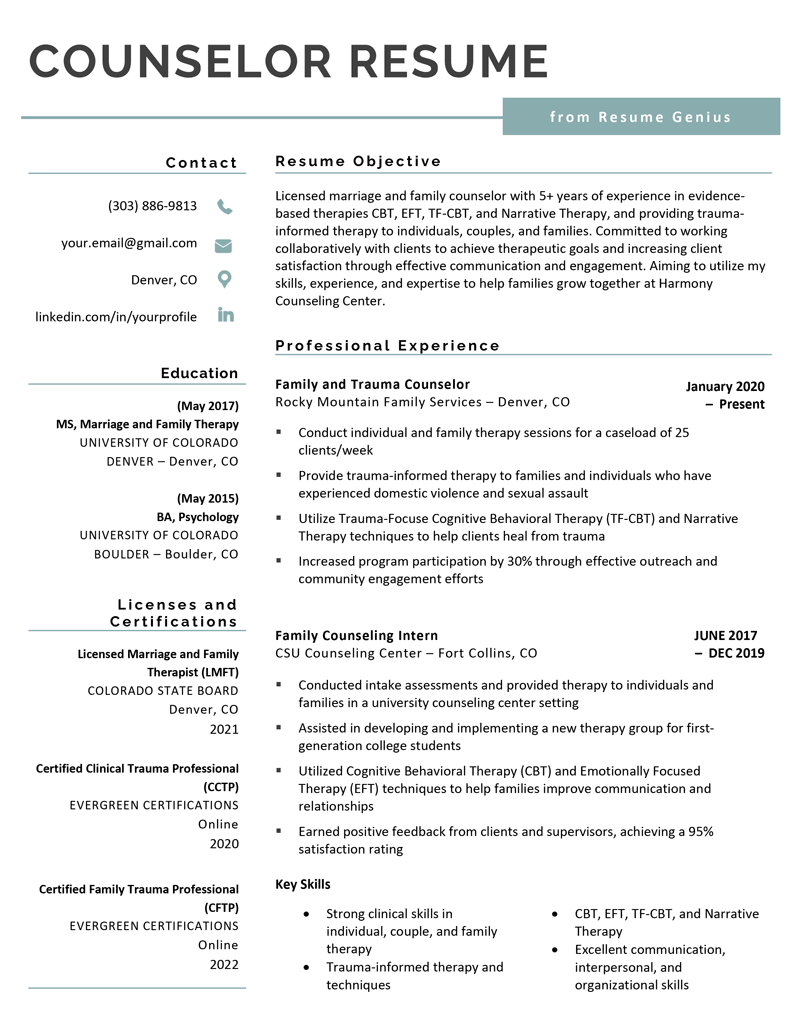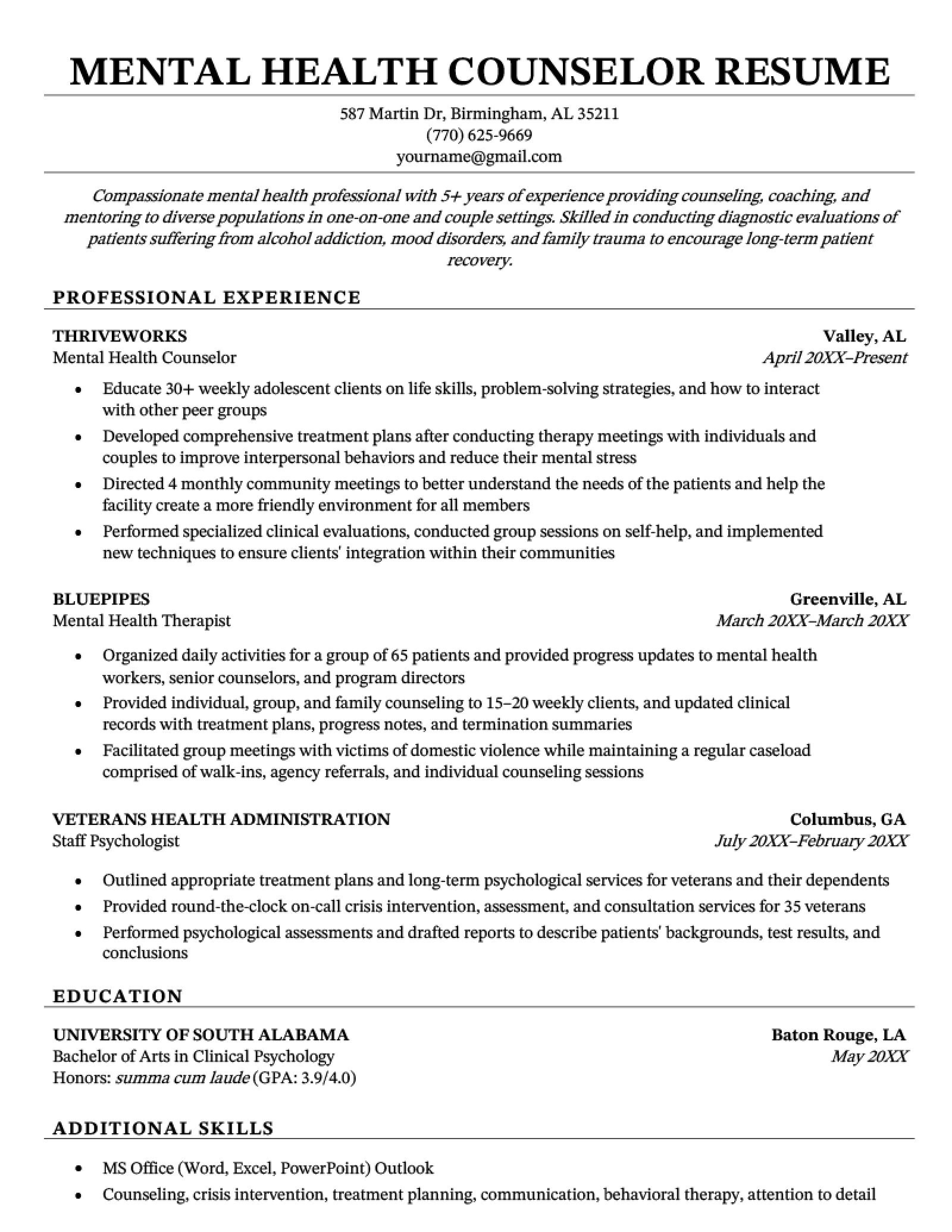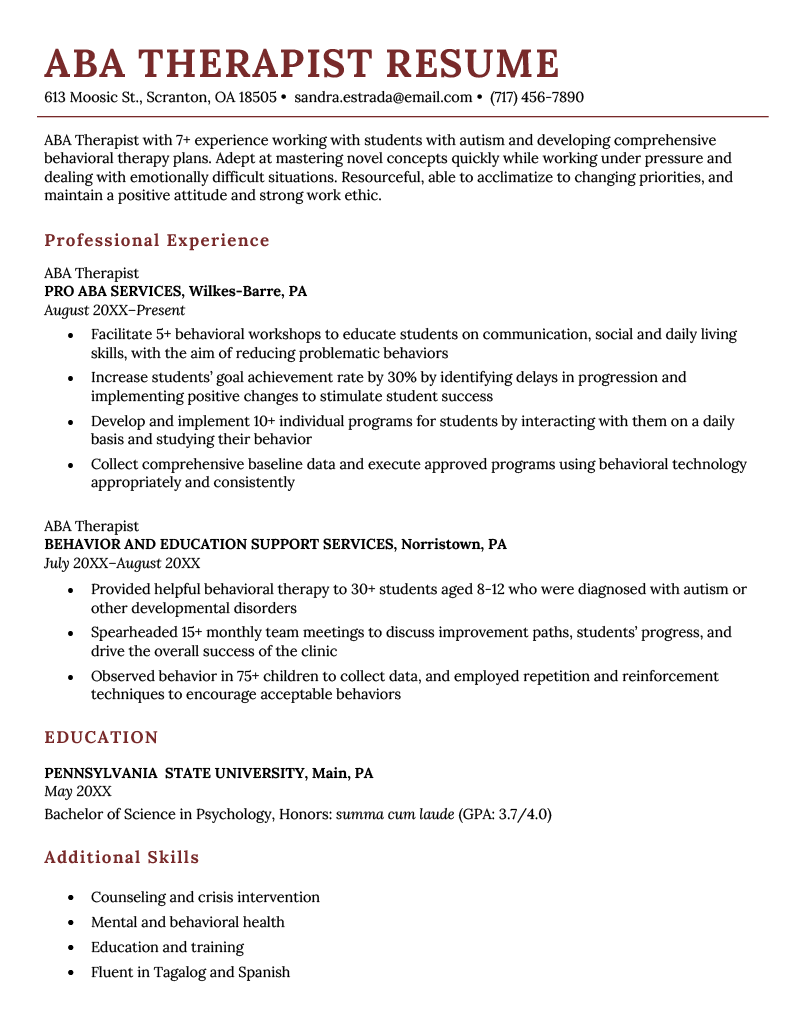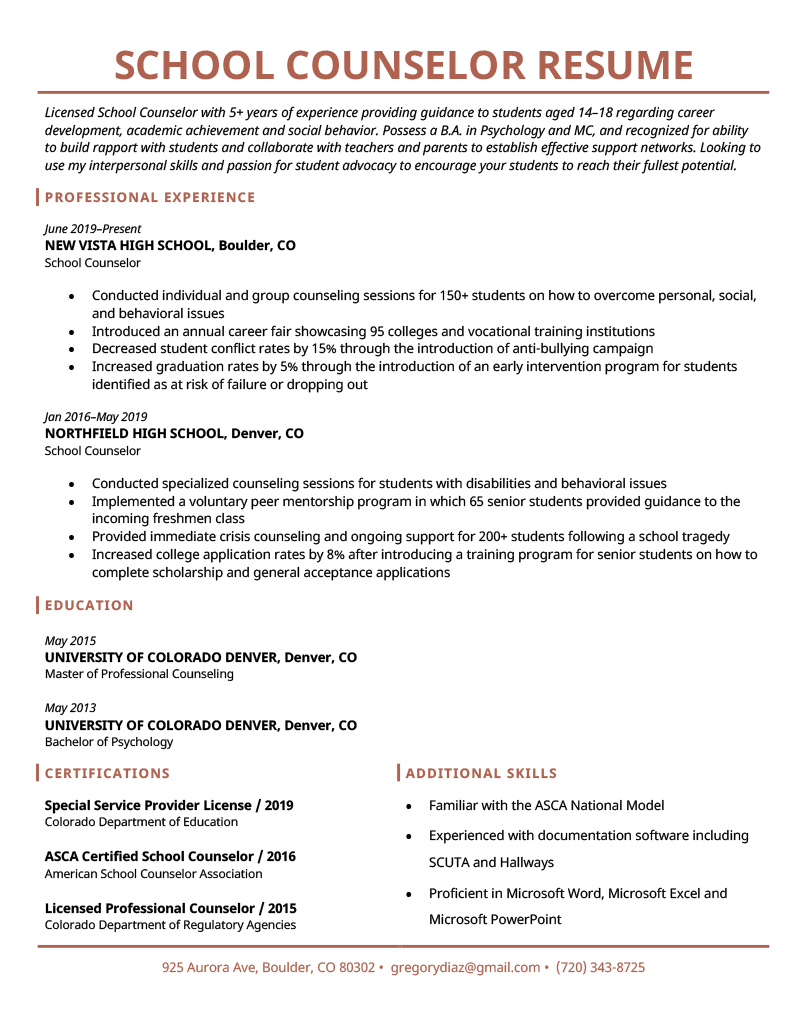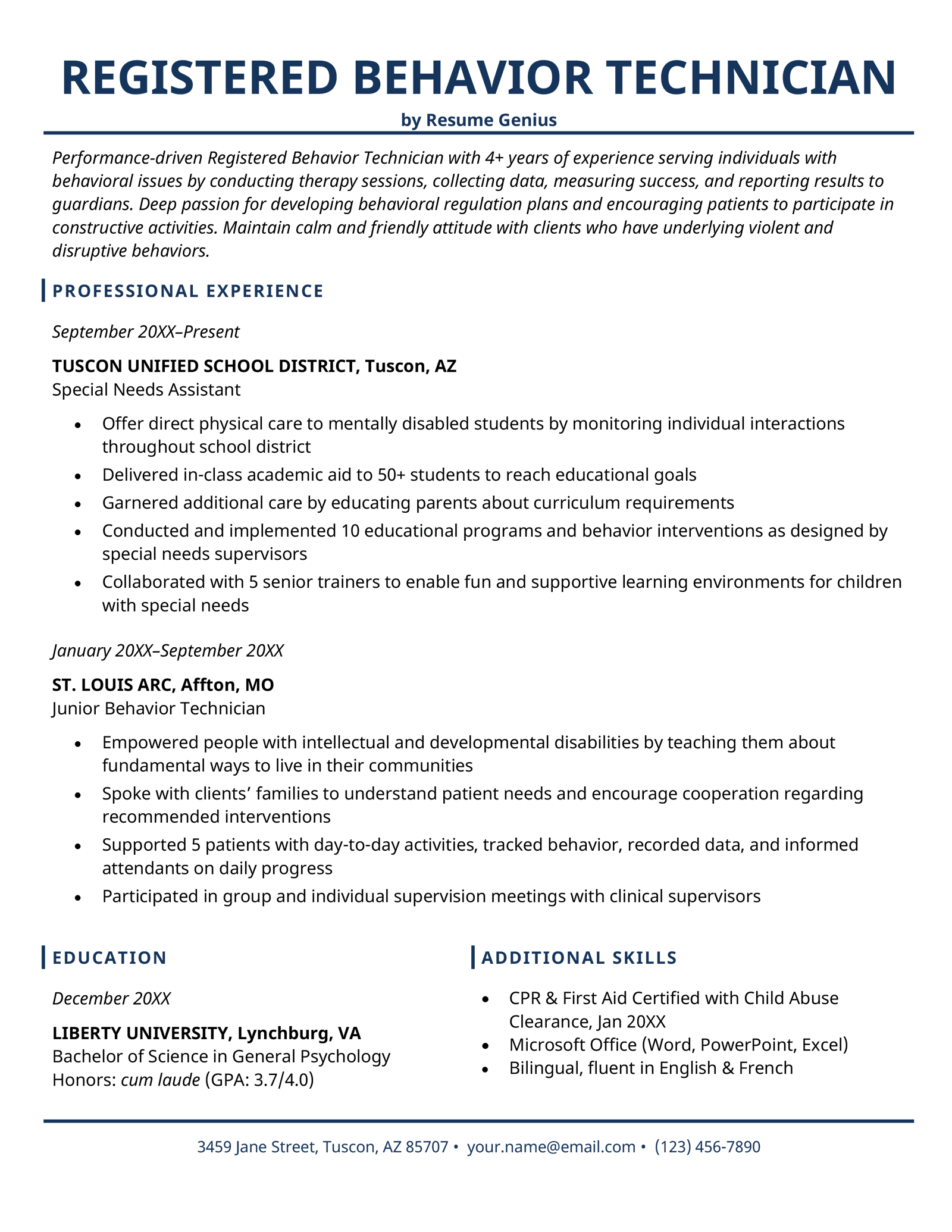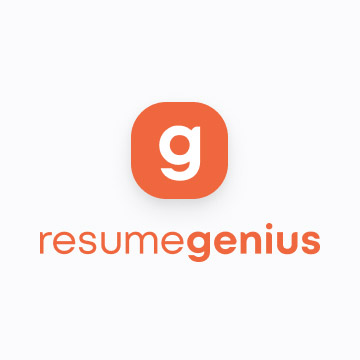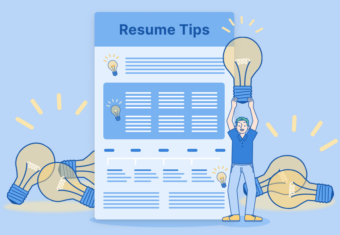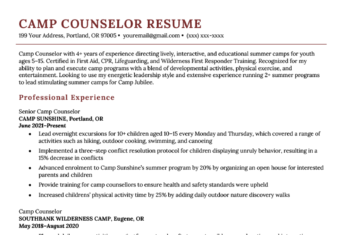Counselor Resume Template (Text Format)
FIRST AND LAST NAME
Email: your.email@email.com
Phone: (123) 456-7891
Address: Street, City, State
LinkedIn: linkedin.com/in/yourprofile
Resume Objective
Licensed marriage and family counselor with 5+ years of experience in evidence-based therapies CBT, EFT, TF-CBT, and Narrative Therapy, and providing trauma-informed therapy to individuals, couples, and families. Committed to working collaboratively with clients to achieve therapeutic goals and increasing client satisfaction through effective communication and engagement. Aiming to utilize my skills, experience, and expertise to help families grow together at Harmony Counseling Center.
Professional Experience
Family and Trauma Counselor
Rocky Mountain Family Services, Denver, CO
January 2020 – Present
- Conduct individual and family therapy sessions for a caseload of 25 clients per week
- Provide trauma-informed therapy to families and individuals who have experienced domestic violence and sexual assault
- Utilize Trauma-Focused Cognitive Behavioral Therapy (TF-CBT) and Narrative Therapy techniques to help clients heal from trauma
- Increased program participation by 30% through effective outreach and community engagement efforts
Family Therapist Intern
CSU Counseling Center, Fort Collins, CO
June 2017 – December 2019
- Conducted intake assessments and provided therapy to individuals and families in a university counseling center setting
- Assisted in developing and implementing a new therapy group for first-generation college students
- Utilized Cognitive Behavioral Therapy (CBT) and Emotionally Focused Therapy (EFT) techniques to help families improve communication and relationships
- Earned positive feedback from clients and supervisors, achieving a 95% satisfaction rating
Key Skills
- Strong clinical skills in individual, couple, and family therapy
- Trauma-informed therapy and techniques
- CBT, EFT, TF-CBT, and Narrative Therapy
- Excellent communication, interpersonal, and organizational skills
Education
(May 2017)
Master of Science in Marriage and Family Therapy
University of Colorado Denver – Denver, CO
(May 2015)
BA, Psychology
University of Colorado Boulder – Boulder, CO
LICENSES & CERTIFICATIONS
Licensed Marriage and Family Therapist (LMFT)
Colorado State Board
Denver, CO
2021
Certified Clinical Trauma Professional (CCTP)
Evergreen Certifications
Online
2020
Certified Family Trauma Professional (CFTP)
Evergreen Certifications
Online
2022


